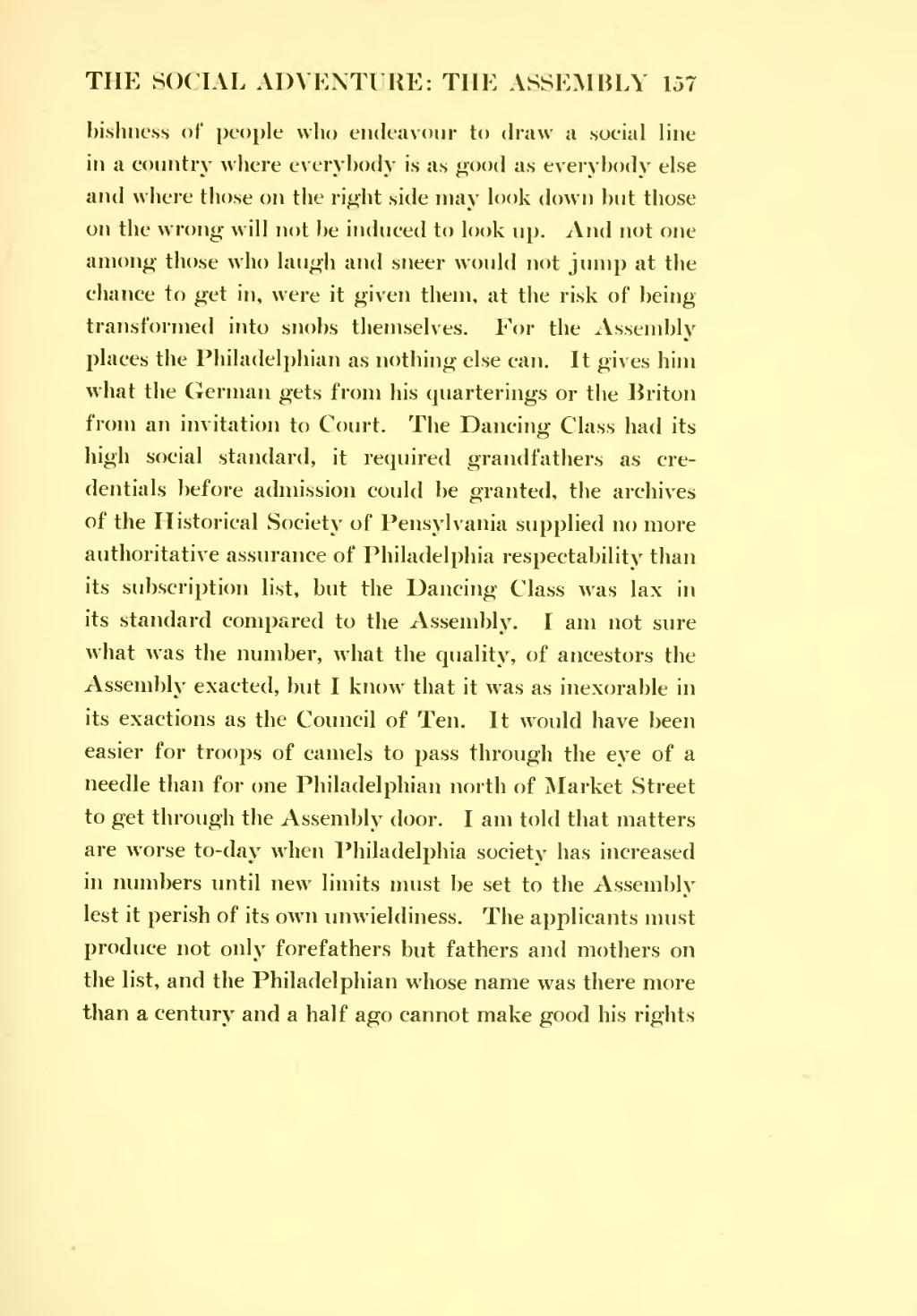bishness of people who endeavour to draw a social line in a country where everybody is as good as everybody else and where those on the right side may look down but those on the wrong will not be induced to look up. And not one among those who laugh and sneer would not jump at the chance to get in, were it given them, at the risk of being transformed into snobs themselves. For the Assembly places the Philadelphian as nothing else can. It gives him what the German gets from his quarterings or the Briton from an invitation to Court. The Dancing Class had its high social standard, it required grandfathers as credentials before admission could be granted, the archives of the Historical Society of Pensylvania supplied no more authoritative assurance of Philadelphia respectability than its subscription list, but the Dancing Class was lax in its standard compared to the Assembly. I am not sure what was the number, what the quality, of ancestors the Assembly exacted, but I know that it was as inexorable in its exactions as the Council of Ten. It would have been easier for troops of camels to pass through the eye of a needle than for one Philadelphian north of Market Street to get through the Assembly door. I am told that matters are worse to-day when Philadelphia society has increased in numbers until new limits must be set to the Assembly lest it perish of its own unwieldiness. The applicants must produce not only forefathers but fathers and mothers on the list, and the Philadelphian whose name was there more than a century and a half ago cannot make good his rights
Page:Our Philadelphia (Pennell, 1914).djvu/177
Appearance

